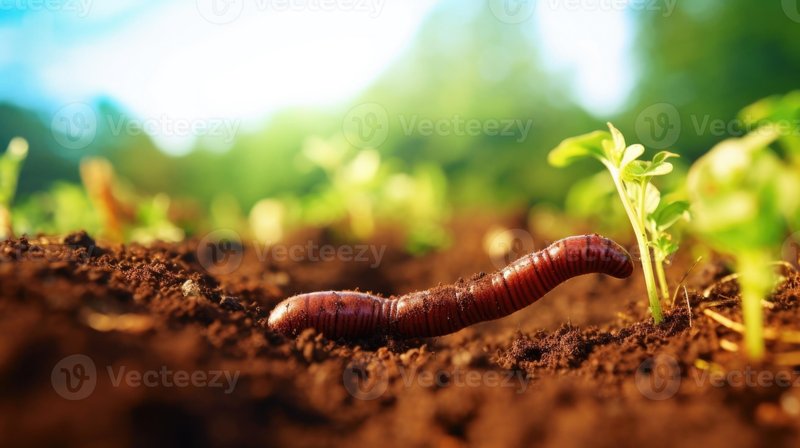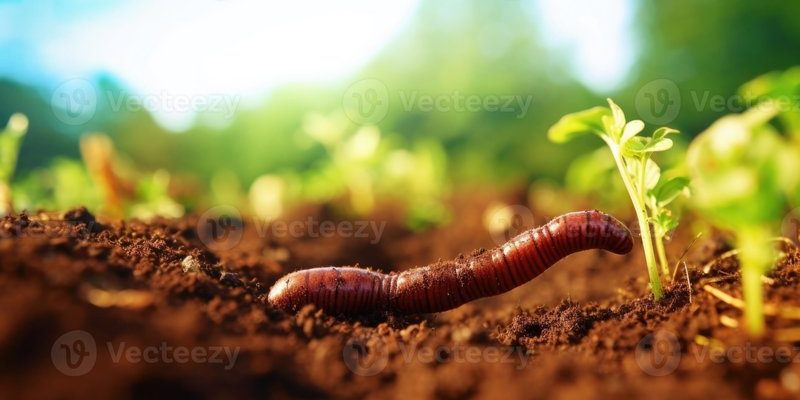
You might be wondering how we can help our wriggly friends survive and thrive. Earthworms face various threats, like habitat loss, pesticides, and poor soil management. By adopting some **organic practices for earthworm conservation**, we can ensure that these little gardeners continue to contribute to our ecosystem. Think of it as nurturing your soil’s health as much as you do your plants. Here’s how you can be part of the solution.
Understanding Earthworms and Their Importance
Earthworms play a crucial role in maintaining soil structure and fertility. They consume organic matter, such as dead leaves and plant debris, and transform it into rich compost-like material known as worm castings. These castings are packed with nutrients that plants love. It’s like a power-up for your garden!
Moreover, earthworms help improve soil aeration and drainage. As they burrow through the earth, they create channels that allow air and water to reach plant roots more effectively. Imagine a sponge soaking up water—this is what earthworms do for the soil. Without healthy populations of earthworms, our gardens could become compacted and less productive.
Simply put, conserving earthworms is vital for both garden health and ecosystem balance. Healthy soil leads to stronger plants, which in turn support the wildlife around us. So, let’s dive into some organic practices that can help protect these essential creatures!
Minimize Soil Disturbance
One fantastic way to keep earthworms happy is by minimizing soil disturbance. Every time we till the soil, we disrupt the delicate ecosystem that earthworms thrive in. Tilling can destroy their burrows and even kill some worms outright.
Instead of tilling, consider using methods like **no-till gardening**. This technique involves planting directly into undisturbed soil. You can add compost or mulch on top of the soil, providing nutrients while protecting the organisms living underneath. It’s like giving earthworms a cozy blanket while ensuring they still have access to food.
If you must till, try to do so sparingly and during dry periods when soil is less likely to be compacted. This way, you can minimize the impact on your earthworm population while still preparing your garden beds.
Embrace Organic Mulching
Organic mulching is another excellent organic practice for earthworm conservation. By covering your soil with organic materials like leaves, straw, or wood chips, you’re not just reducing weeds—you’re creating a habitat for earthworms.
Mulch breaks down over time, providing a consistent food source for earthworms. As they consume it, they help create a rich layer of compost right in your garden. Plus, organic mulch helps retain moisture in the soil, making it easier for earthworms and plants to thrive.
When applying mulch, aim for a thickness of 2 to 4 inches. This thickness will help suppress weeds while still allowing earthworms to access the soil. Think of it as rolling out a red carpet for earthworms!
Choose Natural Pest Control
Chemical pesticides can be deadly to earthworms, as well as other beneficial soil organisms. The good news is that there are plenty of **natural pest control** methods you can use in your garden. These methods not only keep your garden healthy, but they also protect earthworm populations.
For example, introducing beneficial insects like ladybugs can help control pests without harming earthworms. You can also use homemade solutions, like soap sprays or neem oil, to deter unwanted insects. These alternatives are less harmful to your garden’s ecosystem.
Another natural approach is companion planting, where you grow certain plants together to repel pests. For instance, marigolds can deter nematodes while being harmless to earthworms. So, by choosing your plants wisely, you can help protect your garden and its wriggly anchors.
Maintain Soil Health with Composting
Composting is a fantastic practice that benefits both earthworms and your plants. When you add organic matter to your garden, you’re giving earthworms a buffet of nutrients. As they consume this compost, they create nutrient-rich castings that enhance your soil’s fertility.
To get started with composting, consider setting up a compost bin in your yard. Fill it with kitchen scraps, leaves, and grass clippings. Remember to include a mix of green (nitrogen-rich) and brown (carbon-rich) materials for a balanced compost. Over time, you’ll create a nutrient-rich amendment that earthworms will love.
When you incorporate compost into your garden beds, you’re not just enriching the soil—you’re creating a welcoming environment for earthworms to flourish. It’s a win-win for you and your underground allies!
Water Wisely
Believe it or not, the way you water your garden can impact earthworm health. Earthworms need moisture to survive, but too much water can drown them. It’s essential to find a balance to keep your garden thriving while ensuring earthworms stay safe.
A good rule of thumb is to water your garden early in the morning or late in the evening when temperatures are cooler. This prevents excess evaporation and allows moisture to reach the soil more effectively.
Also, consider using drip irrigation or soaker hoses. These methods deliver water directly to the soil, promoting even moisture levels without saturating the surface. Think of it as a spa day for your plants and earthworms, providing the perfect environment for relaxation and growth.
Foster Biodiversity in Your Garden
A diverse garden is a healthy garden. By planting a wide variety of plants—flowers, herbs, and vegetables—you can create a habitat that supports not just earthworms, but a whole host of beneficial organisms.
Biodiversity helps build resilience against pests and diseases, which means you’ll have to rely less on chemicals. Plus, different plants can attract various beneficial insects, creating a vibrant ecosystem that fosters earthworm populations.
You might consider incorporating cover crops, like clover or vetch, during the off-season. These crops not only enrich the soil but also provide food and shelter for earthworms. Essentially, you’re turning your garden into a thriving community that nurtures its smallest members.
Conserving earthworms is essential for a healthy garden and ecosystem. By employing these **best organic practices for earthworm conservation**, you can create an inviting environment for these little champions of soil health. Remember to minimize soil disturbance, embrace organic mulching, choose natural pest control, maintain soil health with composting, water wisely, and foster biodiversity.
With just a few simple changes, you can help ensure that earthworms continue to thrive, contributing to lush gardens and vibrant ecosystems. So, let’s dig deep—literally—and take great care of these incredible creatures. Your garden and the earthworms will thank you for it!

